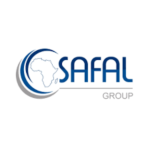
General Background
The unprecedented mass influx of refugees into Uganda since 2016 has put enormous pressure on the country’s resources, in particular health and education services. As of April 2024, Uganda hosts 1673716 refugees and asylum seekers in the country. including from South Sudan (56.2%), Democratic Republic of Congo (DRC, 31%), Burundi (2.6%), Somalia (3.1%) , Eritria(3.0) and Rwanda (1.5%) and others. 91% of the refugees stay in the settlement while 9% are residing in the urban areas of kampala and others . The refugees and asylum seekers are hosted in the districts of Adjumani, Obongi, Yumbe, Koboko, Terego, Madi Okollo, Lamwo, Kiryandongo , Kikuube, Kyegegwa, kmawenge, Isingiro and urban Kampala. Since january 2024, there has been a continued influx of refugees from the Sudan and DRC, with a total of 59,043 new arrivals between 1 January and May 2024. This trend is expected to continue for the remainder of the year, with the crisis insudan and DRC
Refugees share all social services with the local host communities. The refugee hosting districts are among the least developed districts in the country; and thus the additional refugee population is putting a high strain on already meagre resources and services. In line with the Comprehensive Refugee Response Framework (CRRF), which was adopted and embraced by the Government of Uganda in 2017, there is need for coordinated education service delivery. This entails a paradigm shift from a mainly humanitarian focus to development as well in ensuring a broader stakeholder involvement to address these needs and ensure integrated service delivery.
In light of the need for additional support and resources, multiple education partners have worked with the Government of Uganda to develop the Education Response Plan for Refugees and Host Communities in Uganda (ERPII) 2022-2025, which complements the Refugee Response Plan for 2018. These plans link with the Education in Emergencies Working Group (EiEWG) at both national and settlement level, under the inter-agency committee coordination structures in Uganda. There is a need for capacity for education information management, to ensure data from the settlement EiE Working Group is also available to the MoES and districts in a timely manner, whilst Government systems are being established. The Assistant Information Management Officer will support the MoES and UNHCR on issues related to Education data and information management for the ERP and Education
Through this engagement, MoES and UNHCR seek to ensure; effective dessimination and under standing of ERP at all levels, enhanced efficiency in data collection oversight and the management by DLG and partners, inclusion/enrolment of refugees and asylum-seekers in the national Education Management Information Systems (EMIS) and all the 13 DLG and Kampala Urban have costed/prioritized plans.
The staff will be recruited by UNHCR and seconded to Ministry of Education and Sports’ Education Response Secretariat. S/he will be based in Kampala and jointly supervised by Ministry of Education (MoES) and UNHCR most senior Education personnel.
Accountability
- MOES and UNHCR have reliable data on refugees and national learner enrolment across the refugee hosting district and the Urban.
- Trends and patterns of data entered in the EMIS are analyzed and reported to supervisors for interpretation, recommendation/decision.
- Standard and ad hoc reports and data procucts are produced.
- Technical support provided to MoES, DLG,UNHCR, partners and schools.
- Participation of Education Working Group Engagements and Task teams.
Purpose and Scope of Assignment .
Under the close supervision of Education head at UNHCR Representation Office in Uganda, The Assistant Information Management Officer will be based at the Ministry of Education and Sports’s Education Response Plan (ERP) Secretariat Office in Kampala. S/he will provide technical support to support MoES and UNHCR education teams but will also be required to undertake requent missions to the field to support the District Local Goverenments in the 12 Refugee Hosting Districts (RHD) and Kampala City Council (KCCA) to provide systems strengthening support. The key roles and responsibilities of the staff shall include;
- Support the Ministry of Education and Sports (MoES), UNHCR, District Local Government (DLG) in the analysis of data and information, and perform quality and consistency control of education data.
- Collect, compile, aggregate and analyze data and information elements required to produce standardized information products and implement data/information collection plans for baseline and context-specific data.
Assist in training staff involved in data and information management activities including data collection and entry.
- Support the EMIS roll-out processes and ensure refugees and host Community children are enrolled in EMIS and school-based information routinely updates.
- Provide technical information Management support to Needs Asssment processes, specifically in data collection, processing/ collation and analysis.
- Liaise with partners and represent ERP secretariat in meetings related to functions and share updates promptly.
- Undertake field mission to Track and monitor the implementation progress of ERP related activities in RHD, Kampala City Council (KCCA) and other areas upon request
- Perform any other duties as required.
Standard Job Description
Required Languages
,
,
Desired Languages
,
,
Skills
Additional Qualifications
Education
Certifications
Work Experience
Other Information
Shortlisted candidates may be required to sit for a written test and/or oral interview. UNHCR does not charge a fee at any stage of its recruitment process. Recruitment as a UNHCR staff member is subject to proof of vaccination against COVID-19This position doesn’t require a functional clearance
Home-Based
No








